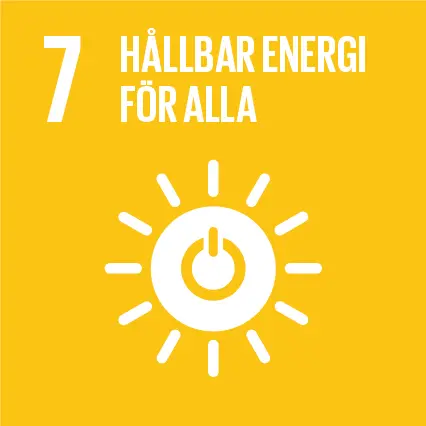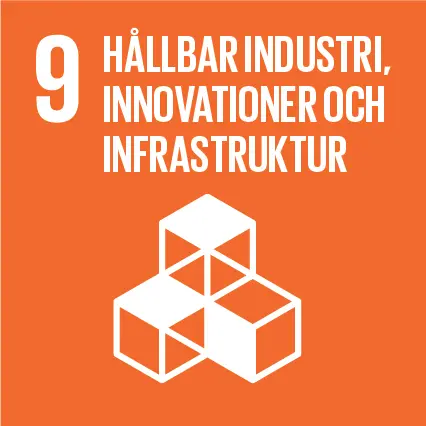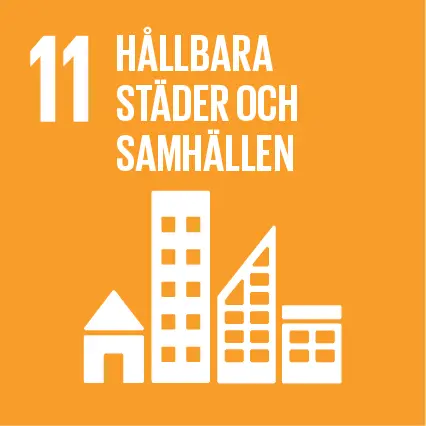Master Programme in Energy Engineering, Energy Online 60 cr
Access to energy in the form of electricity, cooling and heating will always be a fundamental long-term prerequisite for society.
Credits
60 cr
Application code
HIG-19718
Application deadline
april 15, 2024
Form of education
Distance learning
Language
English
Study time
september 2, 2024–juni 8, 2025
Prerequisites
A completed Bachelor's degree, corresponding to a Swedish Bachelor's degree (180 ECTS), or equivalent academic qualifications from an internationally recognised university.
The degree must be within the area of energy, mechanics, building or another adequate subject area. Also required is a minimum of 12 ects in Thermodynamics and Fluid mechanics.
English language proficiency equivalent to (the Swedish upper secondary school) English course B/6.
Selection
Higher education credit
Credits
60 cr
Application code
HIG-19708
Application deadline
januari 15, 2024
Form of education
Distance learning
Language
English
Study time
september 2, 2024–juni 8, 2025
Prerequisites
A completed Bachelor's degree, corresponding to a Swedish Bachelor's degree (180 ECTS), or equivalent academic qualifications from an internationally recognised university.
The degree must be within the area of energy, mechanics, building or another adequate subject area. Also required is a minimum of 12 ects in Thermodynamics and Fluid mechanics.
English language proficiency equivalent to (the Swedish upper secondary school) English course B/6.
Selection
Higher education credit
About the programme
The term sustainable energy engineering comprises a wide array of practices, policies and technologies (conventional and renewable/alternative) aimed at providing energy at the least financial, environmental and social cost.
A strong emphasis is placed on dealing with energy engineering tasks with due consideration of technical, environmental and socioeconomic issues. Advanced methods are applied to identify, describe, quantify and find solutions to a diverse range of energy engineering problems. The programme provides proficiency in project design and implementation, operation and maintenance, as well as in crucial phases of policy generation.
The official language throughout the studies is English. There are no restrictions related to geographical location. The program is a distance-based educational program and all courses can be followed online (the lectures notes will be available online on a web-based learning management system for watching at any time).
However, some courses have occasions such as seminars or project presentations as an examination moment where the student needs to be visibly and orally present online.
COURSES
Energy Systems 7,5 ECTS
Building Energy Systems 7,5 ECTS
Renewable Energy Resources 7.5 ECTS
Energy Management 7,5 ECTS
Industrial Energy Systems 6 ECTS
Energy Systems Optimisation and Simulation 6 ECTS
Scientific Methods and Writing in Energy Engineering 3 ECTS
Thesis Project 15 ECTS
MORE INFORMATION
Ph. D. Nawzad Mardan, nadman@hig.se
Degree
Master of Science (60 Credits)
Fields within the programme Year 1
New conditions for the field of energy
Higher environmental and efficiency demands are a great challenge for research and development and guarantee dynamic development of energy systems. New environmentally-friendly and efficient methods for the transformation of energy and, not least, more efficient energy consumption are among the most important research areas of today and tomorrow.
Engineers with an integrated outlook
An increasingly integrated outlook will be required of the engineers of tomorrow where issues of technology, economy and environment will have to be mastered simultaneously. Technological understanding and the ability to analyse and model small or large-scale energy systems are preconditions for economic and environmental issues to be managed from the right perspective.
A deregulated and internationalised electricity market
Energy is a very large field, where energy needs in different countries with different climates have to be satisfied, often under completely different conditions. This leads to opportunities to work with many different new, environmentally-friendly, efficient and innovative technology solutions and systems in a global market. environmentally-friendly, efficient and innovative technology solutions and systems in a global market.
Utbildningen och FN:s globala mål



Läs mer om hur utbildningen är kopplad till FN:s globala mål
Under utbildningen lär du dig att utveckla lösningar för flera av FN:s globala mål, framför allt följande: Hållbar energi för alla, Hållbar industri, innovationer och infrastruktur och Hållbara städer och samhällen.
7 Hållbar energi för alla
Hållbar energi är ett viktigt område och en av dom viktigaste grundpelarna i vårt samhälle för att klara de klimatmål som är uppsatta för att minska våra utsläpp. Under utbildningens gång lär du dig om olika hållbara energislag, helhetsperspektiv på energisystem, långsiktighet samt främjande av resurshushållning. Du får lära dig kunskaper som krävs för att kunna vidta medvetna och aktiva åtgärder vid planering och uppbyggnad av nya energisystem samt vid ombyggnad av existerande energisystem. Sådana åtgärder kan vara förbättrad energihushållning, övergång till förnybara energislag och effektivisering av systemen.
9 Hållbar industri, innovationer och infrastruktur
Som student får du även inblick i nya lösningar baserad på den forskning som pågår inom området energieffektivisering både inom byggnader och industrin. Förbättrad energieffektivitet utgör nyckelkomponenter i omställningen mot hållbara energisystem, lokalt, regionalt såväl som globalt. Dessutom är de av central betydelse för att Sveriges företag långsiktigt ska vara konkurrenskraftiga och för att bibehålla och stärka sysselsättningsgraden.
11 Hållbara städer och samhällen
Under utbildningen lär du dig om delar av målet hållbara städer och samhällen vilket inkluderar till exempel renovering av befintliga bostäder och industri, användning av solceller och vindkraft och hållbar stadsutveckling i form av energieffektiva byggnader och användaranpassade inomhusmiljöer utformade för komfort, välbefinnande och produktivitet.
This page was last updated 2024-04-17

